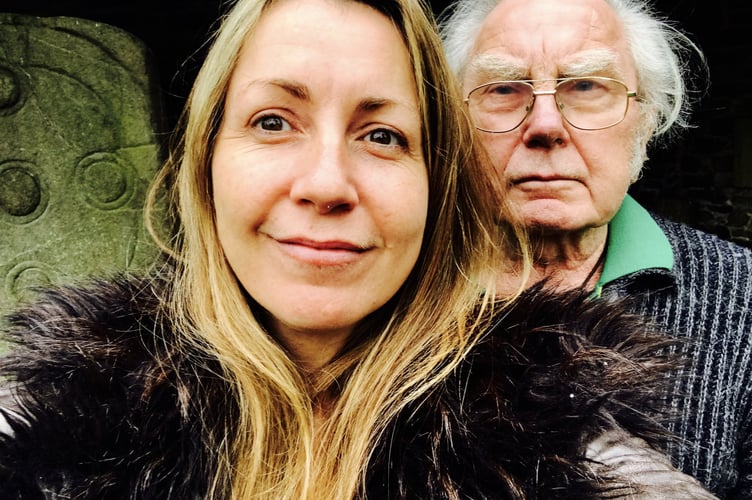The coroner of inquests has found that a procedure at Royal Liverpool University Hospital most likely led to the death of a Manx resident.
James Barlow Denton, who lived in Ramsey, died at the age of 85, following complications caused by a kidney biopsy, a medical procedure whereby a sample of tissue is taken from the kidney.
An inquest into his death highlighted a number of shortcomings from his treatment at Royal Liverpool University Hospital, including a failure to detect that he was Covid positive ahead of the procedure, and a delay to the biopsy which heightened the likelihood of complications.
The coroner of inquests Jayne Hughes ruled out neglect as a contributory factor and recorded a verdict of accidental death.
She said that in making her decision, she had to consider whether the delayed biopsy, lack of care and post-procedure care amounted to neglect.
She added that for the verdict to include ‘contributed to by neglect’, she had to find that the action or lack of,s amounted to gross failure, which she found not to be the case.
Royal Liverpool University Hospital has since launched an investigation into the circumstances around his death, and is implementing changes to tackle the mistakes made.
Born in Liverpool, James had spent ten years in the Royal Navy before moving to the island, and had been with his wife Olive Patricia Denton for 51 years.
In 1974 he opened a guest house in the Isle of Man with his wife, Patricia and later drove tankers for Shell until his retirement.
He was Patricia’s carer, and was described by his daughter, Julie-Anne, as being active and healthy.
After a recent diagnosis of nephrotic syndrome, a group of symptoms that show an issue in function of the kidneys, James was referred to have a kidney biopsy.
Dr John Alexander, a consultant in nephrology, recommended for the procedure to take place within a month. But it wasn’t until seven weeks later, that his kidney biopsy was performed.
In the inquest, Dr Alexander partially attributed this to the NHS being under a lot of pressure.
He also mentioned that the old Royal Liverpool Hospital building had fewer beds available, the hospital moved four to five months after the death of James, (September to October 2022).
However, he admitted: ‘I do think that there was a clinical deterioration within that delay’, adding that ‘the deterioration made the circumstances higher risk than it otherwise would have been if we transferred him earlier’.
delay
Within the three-week delay, James was taken into Noble’s hospital due to a spreading rash, and issues with his kidneys.
Six days later he was transferred to Liverpool hospital to undergo his biopsy.
The day of the procedure, it was deemed safe to go ahead with the biopsy, despite there not being a negative Covid test on the system.
The procedure saw two junior doctors make a total of five failed attempts to obtain kidney tissue, before deciding to abandon the biopsy.
Unknown to them at the time, it was found that one of these attempts most likely punctured the artery of James which ultimately led to his death.
Mrs Hughes said: ‘Given the difficulties I find that it was more likely than not the injury was from the biopsy and the bleeding led to his death.’
However, she found that in terms of how the procedure was carried out, it was performed as it should have been.
Following the procedure the Covid test came back as positive, which Dr Alexander said in the inquest, that Covid can cause more bleeding or blood clots.
He said ‘it is highly unfortunate that we did not spot the Covid test early that morning’ and added that if it was known that James had Covid, the biopsy would have most likely been delayed.
Whilst initial observations, which are standard practice after a biopsy, found no complications, it was three days after that James started to deteriorate.
According to Dr Alexander and Dr Asheesh Sharma, consultant nephrologist, instances of bleeding caused by the biopsy usually take place within 24 hours, and it is extremely rare to see bleeding three days later.
Yet, whilst there were signs of internal bleeding on the evening of April 7 according to Dr Alexander, it was not picked up until the next morning.
It was suspected that following the punctured artery, there was a blood clot, but three days later, when James was put on anticoagulants, that is when the internal bleeding began.
Dr Asheesh Sharma said in the inquest that the guidelines were that the anticoagulant levels should be checked after three doses, however that check did not occur.
bleeding
According to Dr Sharma, James was over coagulated at the time of the bleeding.
He was taken to the intensive care unit, where the punctured artery was identified, and following consent from James’ wife was coiled to stop the bleeding.
Whilst he temporarily started to stabilise, it prevented bloodflow to the colon to which it served.
This eventually led to a change in shape and function of the colon, and ultimately led to sepsis.
Mrs Hughes said: ‘I found on balance death was sepsis, which occured due to artery puncture affecting the colon.’
It was decided to shift to palliative care and he was transferred to Noble’s Hospital, and eventually Hospice Isle of Man, where he died on May 11.
His daughter, Julie Anne said: ‘The loss of my father has been devastating.
‘He was a good father and a devoted husband.
‘He was a man who was loved by many and will forever be missed.
‘He has two grown up grand children from my brother and his wife and unfortunately, he will never get to know that I am finally pregnant after many years of trying.
‘I will have a little girl in December who he will never meet.’



.png?width=209&height=140&crop=209:145,smart&quality=75)
-(1).jpeg?width=209&height=140&crop=209:145,smart&quality=75)